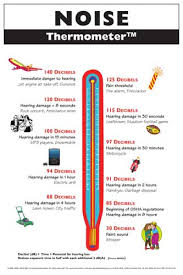 A question often asked is whether tinnitus a symptom of hearing loss? While most commonly linked to hearing loss, tinnitus is not always directly related to hearing loss. Whether or not the condition results in hearing loss, it is currently incurable. Clinics such as the tinnitus Cognitive Center can help you deal with the side effects.
A question often asked is whether tinnitus a symptom of hearing loss? While most commonly linked to hearing loss, tinnitus is not always directly related to hearing loss. Whether or not the condition results in hearing loss, it is currently incurable. Clinics such as the tinnitus Cognitive Center can help you deal with the side effects.
What causes Tinnitus?
The exact cause is never found for most people with the condition. The audial canal contains many delicate nerves and fibers that are easily damaged. Once the hairs in your inner ear are bent, they can transmit unwanted electrical signals to the brain which results in the whooshing, musical noise, or ringing often associated with tinnitus.
For the majority of those afflicted, excessive noise causes the condition. Due to this, up to 90 percent of people experience hearing loss in large part due to damage to the sound-sensitive cells and inner ear.
Other causes of tinnitus include respiratory, chronic health problems, head or neck injuries, benign tumors, and infections. In this case, it is recommended to contact a doctor.
Tinnitus is also linked to earwax blockage, bone changes, and age. Furthermore, certain medications also cause phantom noises. Hearing loss is not correlated with all of these issues.
Is Tinnitus a symptom of hearing loss?
 Those experiencing hearing loss do indeed suffer from tinnitus. The absence of audiological input is a direct cause of the condition.
Those experiencing hearing loss do indeed suffer from tinnitus. The absence of audiological input is a direct cause of the condition.
Studies have found that as many as 15.8% of people experiencing tinnitus had hearing loss across all frequencies and 83 percent lost a degree of hearing in higher frequencies.
Still, with a large number of causes, tinnitus is not necessarily a symptom of hearing loss. Even if it is not a symptom, damage to the ear can lead to hearing loss as well.
Can I prevent Tinnitus and hearing loss?
Tinnitus is preventable. Regular exercise and being careful of the level of noise in your environment mitigate the risk of both hearing loss and tinnitus. Long term exposure to noise can easily cause both issues.
Certain professions such as machinists and lumberjacks should always wear ear protection.
While many people can help prevent tinnitus others may be unavoidable to avoid the condition. Certain medications and biological factors may play a role.
How can I manage my related hearing loss and Tinnitus?
There are a variety of ways to control your tinnitus symptoms. Despite being uncurable, it is possible to learn to cope with the side effects. These side effects are potentially devastating and range from anxiety to depression and suicidal thoughts.
Hearing aid manufacturers are starting to develop technologies that help combat hearing loss. Oticon and Signia are just two of the brands working on devices capable of training the nerve in the ear and block certain frequencies.
The most effective therapies are based on an individual’s needs and deal with thoughts and reactions to the symptoms associated with tinnitus.
Many people may ask whether tinnitus is a symptom of hearing loss. The Tinnitus Cognitive Center can help answer these questions and provides a unique therapy designed to train your brain to cope with negative thoughts in a way that reduces anxiety and depression. Contact us today for more information.
—————-
References
A connection between tinnitus and hearing loss. (1999). Retrieved from https://www.hear-it.org/Close-relationship-between-Tinnitus-and-Hearing-loss
Mayo Clinic Q and A: Tinnitus can interfere with hearing but doesn’t cause hearing loss. (2015, May 9). Retrieved from https://newsnetwork.mayoclinic.org/discussion/mayo-clinic-q-and-a-severe-tinnitus-can-interfere-with-hearing-but-doesnt-cause-hearing-loss/
Tinnitus. (2018). Retrieved from https://www.mayoclinic.org/diseases-conditions/tinnitus/symptoms-causes/syc-20350156

[…] Hearing loss […]